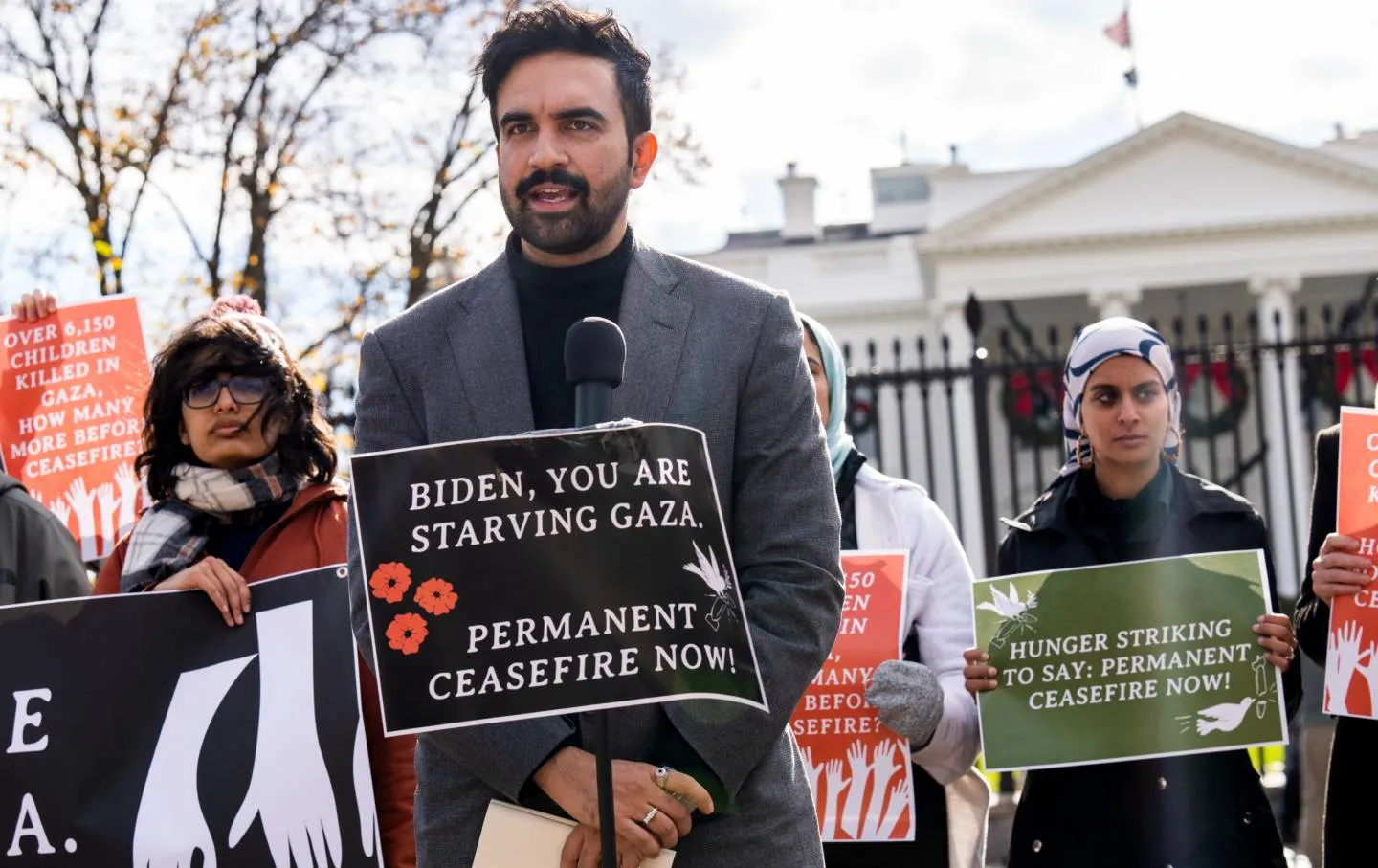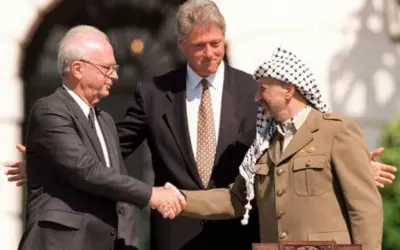(As spoken by Peter Beinart)
This is a cleaned-up version of a quick transcript of a Peter Beinart video about the great victory of Zohran Mamdani
There is a history in the United States of social movements moving their way into the political system, and this is what we’re seeing now with the movement for Palestinian freedom. Obviously, that wasn’t the central element of Zohran Mamdani’s campaign—it was relentlessly focused on making New York affordable for working-class people. Any Democrat, of course, would naturally focus on these bread-and-butter issues. But what was significant about Mamdani’s campaign was that he integrated support for Palestinian freedom into a larger progressive message. Unlike, say, Bill de Blasio—progressive on many issues but clearly making an exception for this one—Zohran Mamdani didn’t make an exception.
That reflects the growing power of the Palestinian freedom movement and how it’s moved from activism into politics. It might have appeared that, with the encampments destroyed and repression on campuses, this movement is essentially dead. But if you look at the history of movements that change American consciousness, they flare up in one form, are put down, and emerge in another. Often, they move into the political system.
Think about the anti-war movement during Vietnam: massive protests beginning in the mid-1960s, followed by support for Gene McCarthy in 1968—”Clean for Gene”—when activists entered the Democratic process. They lost to Hubert Humphrey and then Richard Nixon, but ultimately helped nominate George McGovern in 1972 and elect Democrats in 1974 who cut off U.S. funding for Vietnam.
Though it seemed defeated in the late ’60s and early ’70s, that activism ultimately changed the Democratic Party by the mid-1970s.
Similarly, the Occupy movement flared up in 2011 following the financial crisis. With hundreds of encampments nationwide, it quickly fizzled and seemed dead. But its energy entered the political process with Bernie Sanders in 2016, who came from nowhere and reshaped the Democratic agenda on trade and economic issues, moving it significantly to the left.
Mamdani is an example of this same phenomenon happening with the pro-Palestine movement inside the Democratic Party. It’s not easy to replicate on a national level—New York is far more liberal than the national Democratic Party—and Mamdani ran against an extremely flawed candidate in Andrew Cuomo. But Mamdani was also just a very, very good candidate. Like AOC, he excelled on social media and had a strong, clear message.
This demonstrates that, within the Democratic Party, there’s a huge opportunity for a presidential candidate who doesn’t center Israel-Palestine but, like Mamdani, integrates it into a broader progressive message focused on working- and middle-class Americans. The media hasn’t caught up to how rapidly Democratic public opinion has shifted on Israel. The Pew Research Center found earlier this year that 69% of Democrats now have a negative view of Israel. The shift is happening not just year by year, but month by month.
What’s striking is that in the Democratic Party, the generational gap has closed—older Democrats have also become more critical of Israel. The generational divide now really exists within the Republican Party: older Republicans are the last cohort strongly supportive of Israel, while 50% of younger Republicans now have a negative view.
So, there’s little Democratic voter support for a Biden/AIPAC-type position on Israel. The opportunity in a presidential race is that, like Mamdani, Democratic candidates could tap into this shift and raise massive online funding—just as Sanders and Howard Dean did—allowing them to compete with big donors. In congressional races, especially House races, AIPAC and its allies can swamp candidates with money. Unless you’re a celebrity like AOC or Rashida Tlaib, it’s hard to survive. But in a presidential race, you can.
That’s why Mamdani may become a template for one or more 2028 Democrats running against the Biden-AIPAC line. If they have any political tact at all, they’re going to find a very receptive audience.
The second point is how the media frames Mamdani’s relationship to Jews. The narrative is that Jews are frightened and alarmed—that it’s Mamdani vs. “the Jews.” This is frustrating and inaccurate. Pre-election polling showed Mamdani running second among Jewish voters—Cuomo had 31 percent, Mamdani 20 percent. That’s not surprising, given the deep division among American Jews on Israel, especially along generational lines.
Yes, there are older and particularly Orthodox Jews, especially in places like New York, who feel genuinely threatened by Mamdani. That’s real. Cuomo’s largest margin over Mamdani was in Orthodox-heavy Borough Park and Midwood. But among younger, more secular Jews, there’s huge enthusiasm for Mamdani—not only for his economic message but because their views on Israel align more with his than with the American Jewish establishment.
Last May, a poll showed that 38% of American Jews under 44 believed Israel was committing genocide. Even among Jews overall, the figure was 30%. A significant share said they didn’t know—meaning the number rejecting the claim wasn’t much higher. And that was before Amnesty’s report, before Israel blocked humanitarian aid for over two months. It would likely be even higher now.
The media too often takes cues from legacy Jewish institutions and throws around terms like “Jewish community” or “Jewish leaders.” These should be retired. There is no unified Jewish community. Jews are deeply divided—religiously, culturally, politically. Mamdani alienates one group, especially older Orthodox Jews, and appeals deeply to another: younger, more secular Jews who are often invisible in mainstream narratives.
Ask young American Jews if they agree with their grandparents on Israel. The fractures are everywhere. But the press rarely reflects that.
Finally, the American Jewish establishment rallied around Andrew Cuomo—and may rally around Eric Adams next—to try to stop Mamdani. That alone shows how morally bankrupt their position is. Cuomo is a sexual harasser. Adams is under investigation and made a deal with the Trump administration. Yet the establishment will back anyone, no matter how sleazy or discredited, if they offer unwavering support for Israel.
No one even believes Cuomo or Adams care deeply about Israel. It’s a political transaction. And the establishment keeps making deals with the devil—whether it’s Trump, Cuomo, or Adams—to maintain this single issue. It’s shameful. Not just because it dehumanizes Palestinians, but because it betrays American civic values.
Mamdani’s platform is about making groceries affordable, buses free, and rents manageable. These are issues American Jews should care about. Instead, billionaires like Ackman and Bloomberg, who don’t have to worry about those things, are throwing money at defeating a progressive agenda that would help ordinary New Yorkers—just to preserve unconditional support for Israel.
That’s a betrayal of Palestinians, yes—but also of ordinary Americans. No one’s pretending Cuomo or Adams are better for New York. Their backers don’t care. They care only about Israel and smearing any critic as antisemitic.
But Mamdani’s likely victory, including with substantial Jewish support, gives hope. It shows that many ordinary Americans—and many ordinary American Jews—see through this. They want a better politics. And they’re ready to fight for it.
Beinart: What Zohran’s Victory Means For Palestine, Jews, & Politics
- MJ Rosenberg | Substack
- US Politics, Israel-Palestine, and AIPAC’s Awful Power | MJ Rosenberg | Substack
See also:
Zohran Mamdani’s victory marks the end of Israel’s central place in U.S. politics – Mondoweiss
The beginning of the end of Zionism : the first Jewish anti-Zionist conference








